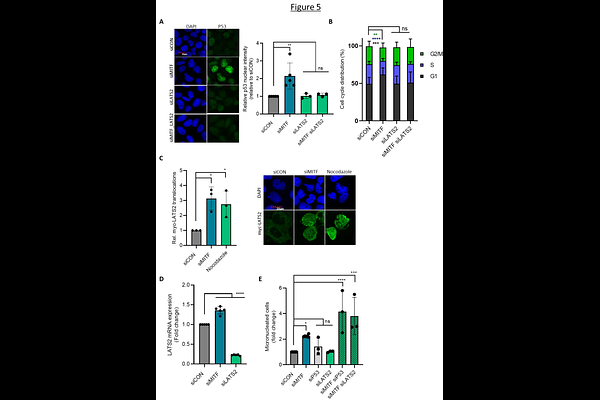MITF maintains genome stability in non-melanocytic cell lineages and suppresses Hippo pathway signaling

MITF maintains genome stability in non-melanocytic cell lineages and suppresses Hippo pathway signaling
Gudmundsdottir, D. H.; de Lomana, A. L. G.; Venkatesh, T. B.; Kirty, K.; Sigurdsson, S.; Vidarsdottir, L.; Dilshat, R.; Sveinbjornsdottir, E.; Ragnarsdottir, S.; Magnusson, D. H.; Bustos, M. R.; Steingrimsson, E.; Gudjonsson, T.; Sigurdsson, S.
AbstractMicrophthalmia-associated transcription factor (MITF) is crucial for development and survival of melanocytes and serves as a lineage-specific oncogene that is amplified in 10-20% of melanomas. The role of MITF in pathways maintaining genome integrity, such as DNA replication, DNA repair and mitosis has been extensively studied in melanocytes. In addition to its pro-survival role in melanoma, recent studies have shown that MITF expression has important implications for cancer progression and treatment in other cancer types. Nevertheless, studies on the role of MITF in other tissues are scarce. Here, we show that depletion of MITF causes genome instability in non-melanocytic cell lineages, which results in activation of P53, cell cycle arrest and apoptosis. Moreover, we show that P53 activation in MITF depleted cells is dependent on LATS2, a key kinase in the Hippo pathway. Finally, we show that this LATS2 mediated upregulation of P53 is ATR dependent. Collectively, this study highlights the role of MITF as a genome maintenance factor beyond the melanocyte lineage, which might contribute to the tumor suppressive function of MITF.